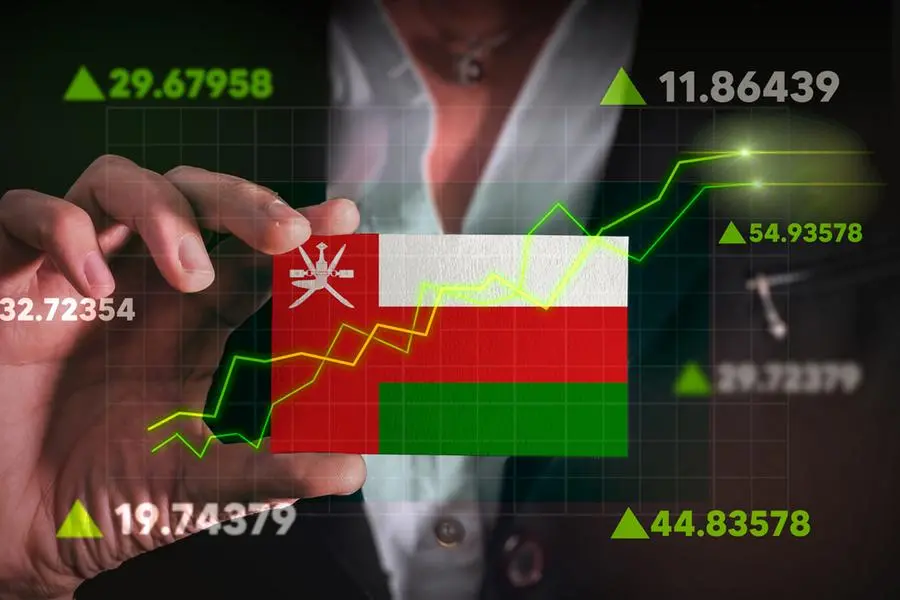PHOTO
In the quest for economic diversification and sustainable development, Oman stands at a critical juncture. Traditional debt instruments, predominantly facilitated by banks, have long been the bedrock of our financial ecosystem. However, to catalyze a new era of economic growth and resilience, it is imperative to shift our focus toward promoting equity instruments. The limitations of traditional banks in meeting the equity market needs, due to their inherently risk-averse nature, underscore the urgency of this transition.
The Limitations of Traditional Banks
Banks, by their very nature, are designed to mitigate risk. This conservative approach, while ensuring stability, often results in stringent lending practices that stifle innovative ventures and burgeoning enterprises. For high-growth sectors and startups that thrive on risk and innovation, the debt-centric model is inadequate. These enterprises require substantial equity funding to realize their potential, which traditional banks are reluctant to provide.
Lessons from India and South Korea
Examining the economic trajectories of India and South Korea reveals the transformative power of equity instruments. In India, the liberalization of equity markets has been a pivotal factor in attracting foreign direct investment (FDI). The advent of platforms like the National Stock Exchange (NSE) and Bombay Stock Exchange (BSE) has provided domestic and international investors with robust avenues to invest in Indian enterprises. This influx of equity capital has propelled startups and established companies alike, fostering an environment of innovation and growth.
Similarly, South Korea's focus on developing its equity market has been instrumental in its economic ascent. The Korean Exchange (KRX) has played a crucial role in mobilizing capital for high-tech industries and fostering a culture of entrepreneurship. The country's emphasis on equity financing has not only attracted substantial FDI but also positioned it as a global leader in technology and manufacturing.
Filling the Gap in Oman's Market
Recognizing the limitations of traditional banking in meeting the needs of the equity market, the Omani government has initiated several measures to address this gap. By fostering a vibrant equity market, Oman aims to attract high-risk, high-return investors to drive innovation and economic diversification. Equity financing provides businesses with the capital they need to expand, innovate, and compete globally without the burden of debt repayment. This is particularly important for sectors identified in Oman's Vision 2040, such as tourism, logistics, and renewable energy.
Current Initiatives in Oman
Oman is taking significant steps to promote the equity market and enhance its financial sector. Key initiatives include the National Programme for Fiscal Sustainability and Financial Sector Development (Estidamah), the launch of the country's first equity crowdfunding campaign by Mamun, and the Securities Law promulgated by Royal Decree No. 46 of 2022.
While these initiatives are a step in the right direction, continuous improvements are necessary. This includes ensuring that the regulatory environment remains conducive to innovation and the introduction of new financial instruments, promoting financial literacy and investment culture among the Omani population, and fostering a supportive ecosystem that nurtures both domestic startups and Micro-, Small, and Medium-sized Enterprises (MSMEs) while also attracting international startups to contribute to Oman's economic growth.
The Amazon and OpenAI Examples
The potential benefits of a robust equity market are exemplified by Amazon's success story. For many years, Amazon was not generating profits, yet it continued to receive substantial investment through equity financing. The equity investment environment in the USA allowed Amazon to focus on growth and innovation rather than immediate profitability. This long-term perspective enabled Amazon to become one of the biggest companies in the world. Such success stories highlight the importance of an equity market that can support businesses through their growth phases without the pressure of immediate returns.
Similarly, OpenAI is experiencing a comparable scenario today. In its early stages, OpenAI relies heavily on equity financing to innovate and develop cutting-edge artificial intelligence technologies. This approach mirrors Amazon's initial journey, demonstrating how a supportive equity investment environment can nurture groundbreaking advancements and potentially lead to significant future success.
Conclusion
To propel Oman towards a prosperous and diversified future, we must embrace the potential of equity instruments. Learning from the successes of economies like India and South Korea, it is clear that a well-developed equity market can attract foreign investment, spur innovation, and support sustainable development. By promoting equity instruments, Oman can bridge the financing gap, attract high-risk, high-return investors, and pave the way for a dynamic and resilient economy.
In essence, the shift towards equity financing is not just an economic imperative but a strategic necessity. It is time for Oman to take bold steps in fostering a vibrant equity market that can drive the nation's vision for a diversified and sustainable future.
2022 © All right reserved for Oman Establishment for Press, Publication and Advertising (OEPPA) Provided by SyndiGate Media Inc. (Syndigate.info).




















